Pierre Bourdieu
Pierre Bourdieu
The Last Musketeer of the
French Revolution
Gad Yair

Published by Lexington Books
A division of Rowman & Littlefield Publishers, Inc.
A wholly owned subsidiary of The Rowman & Littlefield Publishing Group, Inc.
4501 Forbes Boulevard, Suite 200, Lanham, Maryland 20706
http://www.lexingtonbooks.com
Estover Road, Plymouth PL6 7PY, United Kingdom
Copyright 2009 by Lexington Books
All rights reserved. No part of this book may be reproduced in any form or by any electronic or mechanical means, including information storage and retrieval systems, without written permission from the publisher, except by a reviewer who may quote passages in a review.
British Library Cataloguing in Publication Information Available
Library of Congress Cataloging-in-Publication Data
Yair, Gad.
Pierre Bourdieu : the last musketeer of the French Revolution / Gad Yair.
p. cm.
Includes bibliographical references and index.
ISBN 978-0-7391-2500-7 (alk. paper) ISBN 978-0-7391-4277-6 (electronic)
1. Bourdieu, Pierre, 19302002. 2. SociologistsFrance. 3. Revolutions. 4. Democracy. I. Title.
HM479.B68.Y25 2009
301.092dc22 2009031196
 The paper used in this publication meets the minimum requirements of American National Standard for Information SciencesPermanence of Paper for Printed Library Materials, ANSI/NISO Z39.48-1992.
The paper used in this publication meets the minimum requirements of American National Standard for Information SciencesPermanence of Paper for Printed Library Materials, ANSI/NISO Z39.48-1992.
Printed in the United States of America
Contents
The representatives of the French people, organized as a National Assembly, believing that the ignorance, neglect, or contempt of the rights of man are the sole cause of public calamities and of the corruption of governments, have determined to set forth in a solemn declaration the natural, unalienable, and sacred rights of man, in order that this declaration, being constantly before all the members of the Social body, shall remind them continually of their rights and duties; in order that the acts of the legislative power, as well as those of the executive power, may be compared at any moment with the objects and purposes of all political institutions and may thus be more respected, and, lastly, in order that the grievances of the citizens, based hereafter upon simple and incontestable principles, shall tend to the maintenance of the constitution and redound to the happiness of all.
(The Declaration of the Rights of Man and the Citizen, August 26, 1789).
 Introduction
Introduction
Bourdieus Politics of the Revolution
This book argues that Pierre Bourdieu assigned himself as the representative of the French people and acted as its National Assembly. In that capacity, he set himself to work with the charter of the preamble to the Declaration: to remind the members of the social body of their rights and obligations; to monitor the legislative and executive powers and compare them with the Republican purposes of ideal political and social agendas decreed by the revolutionaries of 1789; and overall, to maintain the tenets of the French constitution. In that sense, like dArtagnan in Dumas The Three Musketeerswho also came from an impoverished family from GasconyBourdieu took it upon himself to be the fighter for true France, namely the keeper of the Republican tradition of the French revolution.
Bourdieus entire oeuvre was indeed motivated by the failed promise of the French Revolution and by the demise of its most noble ideals. His passionate analysesof educational stratification, cultural production and consumption, gender relations, the social structure of the economy, and the effects of globalizationwere always carried out with the moral benchmark of the revolution in mind. Bourdieu was indeed passionately tied to the values of the French Revolution, notably to liberty and meritocracy, to social equality, and to the democratization and universalization of government. But wherever he looked, he saw those values betrayed by the very people who argued for their implementation, and by the governmental bodies which were devised in order to guarantee their effectiveness. Committed to the values of The Declaration of the Rights of Man and the Citizen, he was constantly frustrated by the betrayals of universalization by the Fifth Republic (1958 to the present).
The systematic analyses presented here show that Bourdieus empirical analyses repeatedly exposed that while the French republic called for the abolition of the monarchy and the order of the estates, the members of the nobility succeeded in reproducing their aristocratic class advantages while guaranteeing their particularistic interests across the generations. His studies of museums and universities, for example, exposed how the descendents of the nobility succeeded in guarding their position through the seemingly universalistic and meritocratic criteria of these modern institutions. Basing his arguments on detailed empirical observations, he brought to light the hidden and intricate mechanisms by which the aristocrats of the ancien rgime strategically maneuvered themselves in changing historical contexts, with their offspring continually enjoying undue privileges. Specifically, he has shown that the new nobilityphilosophers and top state administrators, like Parisian bourgeoisie and Normalieneis un-meritocratically over-benefited relative to those who actually remained members of the third estate: immigrants, the unemployed, working-class laborers, women, the petite bourgeoisie, or in other words those who were to be aspired by the ideals of the Revolution yet are repeatedly betrayed by its leaders.
The frustrating gap between the ideals of the French republic and their implementation in practice serves as a moral compass that directed Bourdieus oeuvre. It is the core code through which Bourdieu viewed the world: Wherever he looked, he always saw a failed moral revolution, a betrayed promise for egalitarianism and universalism. By constantly looking at social class inequalities, he was able to expose how state-supported bodiesuniversities and banks, museums and local authoritiesare used to deflecting the very ideals which justify their existence. By closely observing the micro-level action of agentshomebuyers and students, music lovers and shoppershe was able to show the complicity of the excluded, those who play the role of prison guards of their own imprisonment. Executing the inheritance embodied in their habitus, they operate the self-effacing predicament that modern ideologies were impregnated with. They thus hold themselves back at the fringes of the social order.
For Bourdieu, then, the ancien rgime never really gave way to the Revolution. His work metaphorically suggests that the Bastille still exists. But today, the rgime and its ideological powerhouses have been naturalized and neutralized. Consequently, the symbolic violence that contemporary governments exact against the excluded is more dangerous than the physical horrors that transpired in the dungeons of the historical Bastille, for its victimsstudents, immigrants, the petite bourgeoisie, women, and workersare all ignorant of their existential imprisonment by powerful symbolic counter-revolutionary mechanisms and institutions. Instead of being controlled by powerful and violent external forces, the citizens of today have internalized these technologies. They thus become their own prison and their own jailers. Exacting this self-defeating symbolic violence, the excluded have turned a social problemone which allowed protestinto a personal problem. Instead of rebelling against unjust and arbitrary powers, they acquiesce in silence and frustration. Thus, instead of liberating the third estate, the Revolution perfected the means of control while allowing the aristocracy to hide the power structure of modern society.



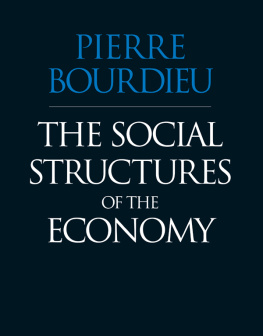
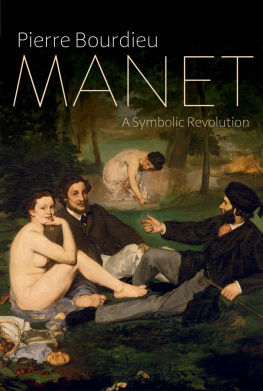
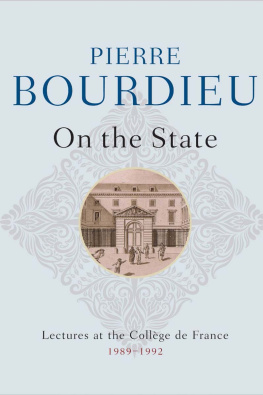

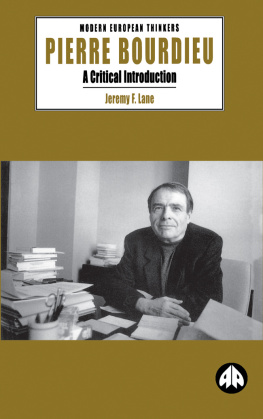


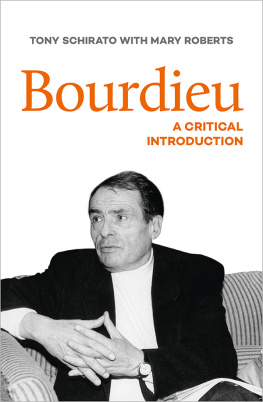


 The paper used in this publication meets the minimum requirements of American National Standard for Information SciencesPermanence of Paper for Printed Library Materials, ANSI/NISO Z39.48-1992.
The paper used in this publication meets the minimum requirements of American National Standard for Information SciencesPermanence of Paper for Printed Library Materials, ANSI/NISO Z39.48-1992. Introduction
Introduction